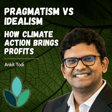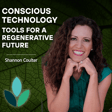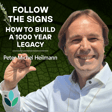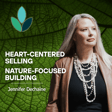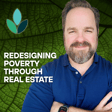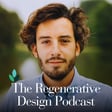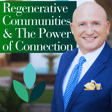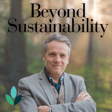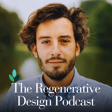
EP27: Rooted in Integrity: How Regenerative Business Can Heal People and the Planet | Justin A.H. Snyder
“I think it’s really important to like, keep your morals and your values in your business that you have in your private life.”
Many people dream of doing meaningful work, but few manage to build a business that regenerates both human health and the planet. This episode dives deep into what it means to grow a regenerative brand—literally and figuratively—rooted in whole foods, soil health, and uncompromising quality. From freeze-dried mushrooms to rainforest conservation, this is entrepreneurship in service to life.
We hear from someone who bootstrapped a business from a dusty festival stall to a globally shipped wellness brand without compromising on values. Through stories of failed ventures, compost bucket disasters, and high-integrity product decisions, he explains why growing food and growing business aren’t so different: both require patience, consistency, and reverence for nature.
Justin A.H. Snyder is the founder of Forest Superfoods, an Australia-based company offering high-integrity superfood products. A lifelong entrepreneur and regenerative advocate, he’s also a passionate home grower and conservation supporter funding rainforest protection through every sale.
Learn more & connect:
- Forest Superfoods
🔗 https://www.forestsuperfoods.com.au
🔗 https://www.forestsuperfoods.com
- Rainforest Rescue
The nonprofit Justin partners with to protect and restore Australia’s Daintree Rainforest.
🔗 https://www.rainforestrescue.org.au
- Bill Hicks
A comedian referenced by Justin for his sharp, unfiltered commentary on society and nature.
Explore these valuable resources to further your journey in regenerative design:
Discover more about Regenerative design at Paulownia Landscape Architects. https://www.paulownia-la.com/.
Dive into the Twelve Laws of Nature and unlock the secrets of harmonizing with our planet at https://www.12lawsofnature.com/.
Fulfill your garden aspirations with expert guidance from the Garden of Your Dreams masterclass at https://www.gardenofyourdreams.com/.
Ready to take actionable steps towards your dream garden? Book a complimentary 30-minute training session with Matthieu for immediate results: https://calendly.com/garden-of-your-dreams.
